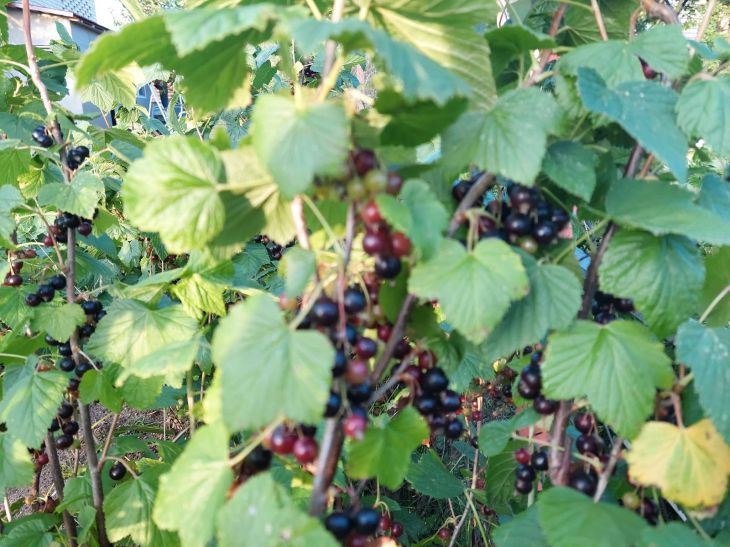The future currant harvest depends greatly on spring feeding.
Therefore, experienced summer residents try not to leave the bushes unattended when the weather gets warmer.
First feeding
When the soil warms up to +5 °C, nitroammophoska is added. The fertilizer is placed next to the plant, then carefully dug into the soil and watered. Top dressing is carried out before the currant blossoms.
Second feeding
During the flowering period, the emphasis is shifted towards phosphorus-potassium fertilizers. A solution is applied under the root: 10 g of potassium sulfate and 10 g of superphosphate per 10 liters of water.
Experienced gardeners do not only root feeding. At the end of May, they spray the foliage with a solution: 3 g of superphosphate and 3 g of potassium sulfate per 10 liters of water.

Third feeding
During the formation of the fruit node, gardeners recommend adding ash. For each blackcurrant bush - 150 g, red - 200 g. Ash is scattered on the ground, the soil is loosened and watered.








